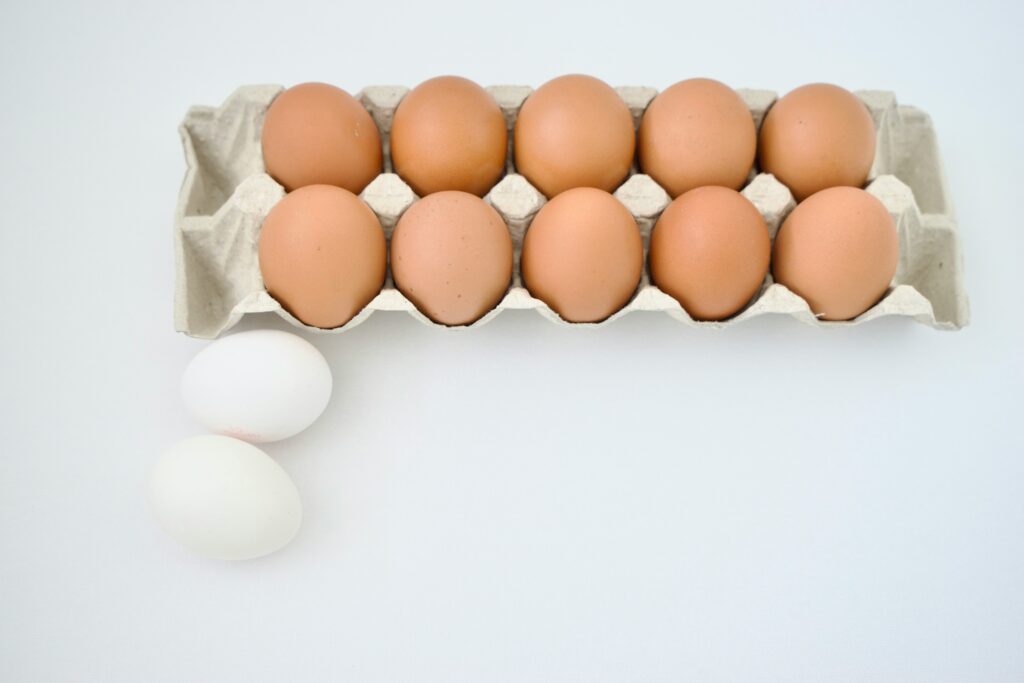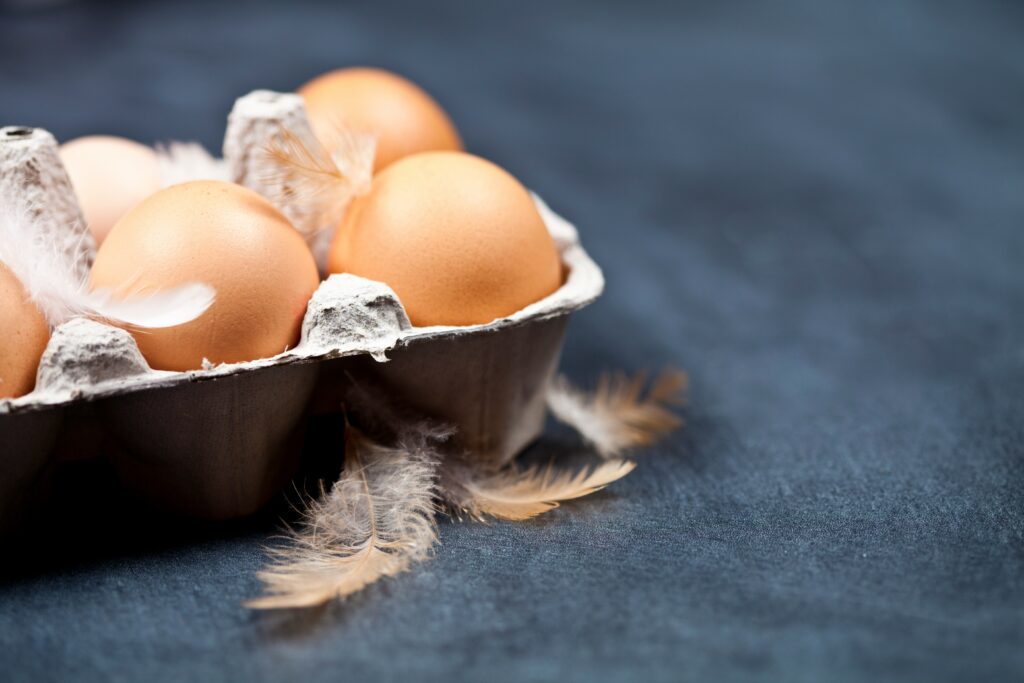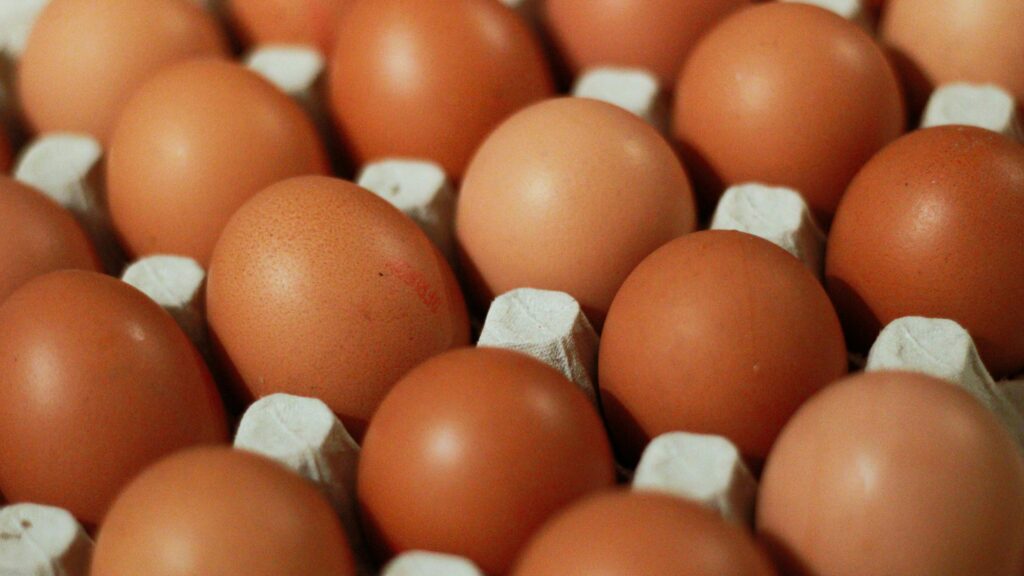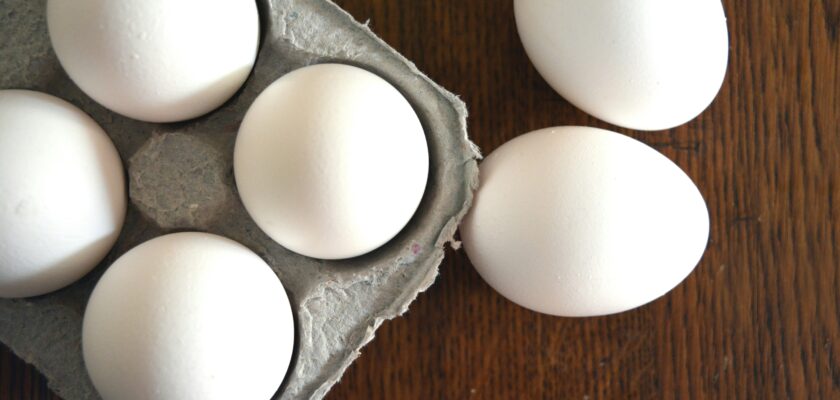Understanding Fresh Eggs and Their Natural Coating
Fresh eggs, especially unwashed ones, come with a natural protective layer called the bloom or cuticle. This invisible coating shields the egg from bacteria and moisture loss. When left intact, it allows the egg to remain safely at room temperature far longer than store-bought, washed eggs.

What Makes Fresh Eggs Different From Store-Bought?
Commercial eggs in the U.S. are washed and sanitized to meet FDA regulations, which unfortunately removes the bloom. Once washed, eggs must be refrigerated to prevent bacterial intrusion. In contrast, farm-fresh unwashed eggs retain their natural defense, giving them a major advantage in room-temperature storage.
The Role of the Bloom: Nature’s Egg Sealant
Think of the bloom as the egg’s security guard. It seals the pores in the eggshell, blocking harmful microbes from getting in. According to NC State Extension, once the bloom is washed away, the shell becomes porous and vulnerable, hence the need for refrigeration.
Room Temperature Storage: Safe Duration
The golden question—how long is too long to leave eggs out?
Average Shelf Life at Room Temperature
- 7 to 21 days: Unwashed, freshly laid eggs can sit at room temperature (60–70°F) for up to 3 weeks safely.
- Less than 2 days: Washed eggs need to be refrigerated after a short period due to their exposed porous shell.
Key Factors That Influence Room Temperature Shelf Life
Several variables affect how long your fresh eggs can safely stay out:
- Room temperature stability (avoid hot kitchens)
- Humidity levels
- Shell integrity
- Presence of bloom (unwashed vs. washed)
Tip: Always date your eggs upon collection to track age.
Refrigeration vs. Non-Refrigeration: Global Practices
In many parts of Europe, eggs are sold unrefrigerated. That’s because EU regulations ban egg washing, preserving the bloom naturally. It’s a cultural and scientific contrast to the U.S. model, where eggs are cleaned and chilled immediately.
How to Tell if an Egg Has Gone Bad
Try the float test:
- Sinks and lays flat: fresh
- Stands upright: older, but still usable
- Floats: spoiled – discard immediately
Other red flags include:
- Sulfur-like smell when cracked
- Watery whites or discolored yolks
Washing Eggs: Why It Matters
Washing strips away the egg’s cuticle. If you plan to store eggs at room temperature, don’t wash them until just before use. If already washed, refrigerate them immediately.

Photo by Maria Kovalets on Unsplash
How Humidity and Climate Impact Egg Freshness
High humidity may accelerate mold growth on the shell. Conversely, very dry air can cause moisture loss. In tropical climates, refrigeration may still be the safer choice—especially when room temps exceed 80°F consistently.
Should You Use Egg Cartons or Leave Them Open?
Always store eggs in clean, breathable cartons. They protect against temperature changes, dust, and pests. If you reuse cartons, sanitize them regularly to avoid cross-contamination.
Best Practices for Storing Unwashed Eggs Indoors
- Keep eggs in a cool pantry or cellar
- Rotate stock using “first in, first out” method
- Label eggs with the collection date
- Use a wire egg basket for air circulation, if desired
Can You Freeze Fresh Eggs?
Absolutely, but not in the shell. Crack them into silicone molds or ice trays, beat gently, and freeze. Once solid, transfer to airtight freezer bags. Frozen eggs can last up to 12 months.
Creative Uses for Older (But Safe) Eggs
Not ready for the compost pile yet? Slightly aged eggs are perfect for:
- Hard boiling (easier to peel)
- Baking
- Quiches and frittatas
- Pancake or waffle batters
How Long Can You Leave Cooked Eggs Out?
Per USDA guidelines, cooked eggs should not sit out longer than 2 hours (1 hour if above 90°F). Bacteria like Salmonella thrive in warm temps, so refrigerate promptly.

Photo by Nicolas Lorenzo on Unsplash
Safety Tips When Using Eggs in Recipes
- Don’t reuse eggshells to separate yolks and whites
- Avoid cross-contamination by washing hands and tools
- Use pasteurized eggs for raw recipes (e.g., Caesar dressing or mousse)
Common Myths About Egg Storage Debunked
- Myth: All eggs must be refrigerated. Not true—only washed eggs.
- Myth: Brown eggs last longer than white. Shell color doesn’t affect shelf life.
- Myth: Cloudy whites = bad eggs. Actually, it means they’re very fresh!
Summary Table: Egg Storage Methods and Shelf Life
| Storage Method | Washed | Shelf Life | Notes |
| Room Temperature | No | 7–21 days | Store under 70°F |
| Refrigerator | Yes/No | Up to 3 months | Ideal for long-term storage |
| Freezer (beaten eggs) | N/A | Up to 12 months | Must be cracked and mixed first |
FAQs
1. How long can farm-fresh eggs sit on the counter?
Up to 21 days if unwashed and stored below 70°F.
2. Should I wash eggs before storing them?
No—only wash before use unless you’re refrigerating immediately.
3. Can I use eggs that float in water?
No, those are likely spoiled and should be discarded.
4. Do all countries refrigerate eggs?
No. Many countries, like those in Europe, sell eggs unrefrigerated due to different handling regulations.
5. Can I leave boiled eggs out overnight?
No, cooked eggs should not be left out for more than 2 hours.
6. What’s the best way to freeze eggs?
Crack them, lightly beat, and freeze in molds or containers.

Conclusion
Fresh eggs are a wonderful gift from nature—nutritious, versatile, and self-preserving when handled right. By understanding their biology and respecting natural processes, you can store eggs safely and deliciously, without immediate refrigeration. Whether you’re running a homestead, buying from the farmer’s market, or just love eggs, these tips will ensure nothing goes to waste.
